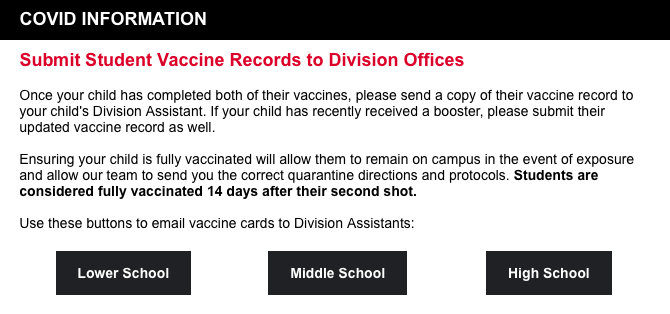We’ve all been there. Scrolling through social media or news headlines when suddenly you see a shocking news headline or story you haven’t heard about before. It’s easy to immediately believe that the news is true because everyone is talking about it on the platform. But, we implore you to always do some research on your own before immediately believing random pieces of news on social media. While they can have some truth to them, it’s easy to fabricate news.
In order to be accurately informed, make an educated opinion, choose ethical news sources, and read multiple sources about the topic, maybe even those with opposing viewpoints.
Social media also tends to spread a lot of misinformation. While activism through social media can be good, it’s important to fact-check what you read before you buy into it, just as you should with news sources.
A Feb. 22 Pew Research Center study named “How Americans Navigated News in 2020: A Tumultuous Year in Review” published that in the last two years, Americans who largely got their news from social media knew less about politics and current events and knew more about unproven stories.
Additionally, a survey conducted in March 2019 by Satista, a company that specializes in market and consumer data, showed that 49% of adults who shared false information did it unknowingly but 10% did so knowingly.
A recent example of misinformation on social media that went viral was a tweet by U.S. Sen. Ted Cruz. Cruz has often been outspoken about not believing in climate change. During the recent Texas snowstorm, a fabricated tweet that said “I’ll believe in climate change when Texas freezes over” was attributed to Cruz and went viral. The tweet has been proven to have been fabricated.
A search for the tweet on his Twitter account yields no results. Additionally, the tweet isn’t in ProPublica’s Politwoops database that tracks deleted tweets by elected officials.
Research by Reuters, a trusted wire service, also concluded the tweet was fabricated.
Many people may have realized it was fake when they saw it, but many have also retweeted and reposted the fake tweet on various social media platforms, whether or not they believed it.
This is how misinformation spreads. If you don’t take the steps to fact-check information, it’s easy to be misinformed.
Misinformation can also be spread due to biased news sources. For example, Fox News is a known right-leaning news source. Ninty-three percent of Fox News viewers identify as Republicans or lean right, according to the Pew Research Center.
This is shown in many of their headlines, as it tends to have loaded headlines that are in support of conservative ideologies, such as “‘They Wanted It to Blow Up’: Limbaugh Says Success of Trump-Kim Summit Caught Media Off Guard.”
Fox News has also been proven to spread misinformation. A recent example of this was when they aired TV segments linking electronic voting machines to fraud during the 2020 U.S. election.
The allegations claimed that the Smartmatic systems illegally changed millions of Former President Donald Trump’s votes over to President Joe Biden in multiple states. Trump filed unsuccessful lawsuits; no evidence has been provided for any of the allegations and federal courts have dismissed his lawsuits.
Being misinformed doesn’t just hurt you. It could potentially hurt your community and even the entire nation.
This is critical and detrimental to important times like election periods in a nation’s history.
When choosing to align with a party or supporting a candidate, it’s crucial that you look at multiple sources of differing views that may not agree with your believed political alignment.
According to the Pew Research Center, about 25% of Democrats and Republicans frequently used news outlets that politically aligned with their views.
If those people were to use sources with unbiased news stories, they would be able to get a more holistic view of politics.
The best news outlets to get information from are the ones that have minimal partisan bias or a balance of biases as well as accurate information. You should avoid inaccurate, biased news sources.
In a chart credited to Adfontesmedia, news sources with minimal partisan bias and accurate information include the Associated Press, Bloomberg, ABC, PBS, The Wall Street Journal, BBC, NPR, Time Magazine, The New York Times, The Washington Post and The Sacramento Bee.
Those sources report hard news facts without opinions.
If you want to understand arguments about a topic from multiple perspectives with analysis and opinion, look at The Guardian, The Economist, MSNBC, CNN, The New Yorker, The Washington Times, The Atlantic, Vox and Vanity Fair.
Since these news outlets tend to have hyper-partisan bias while still giving a fair interpretation of the facts, form an opinion with more than just one source.
Avoid at all costs: The Huffington Post, BuzzFeed News, Daily Mail, New York Post, Fox News, News Max and the Daily Caller.
These publications have been proven to give opinionated and fabricated information. Under no circumstances should you ever resort to these sources as your main news feed or form an opinion based on something written by these outlets.
It’s your responsibility to follow the truth, make opinions accordingly and share them with others. The next time you’re about to swipe up on an eye-catching headline, remember to check the source and research other reports of the topic before forming a viewpoint.
Originally published in the April 13 edition of the Octagon.


